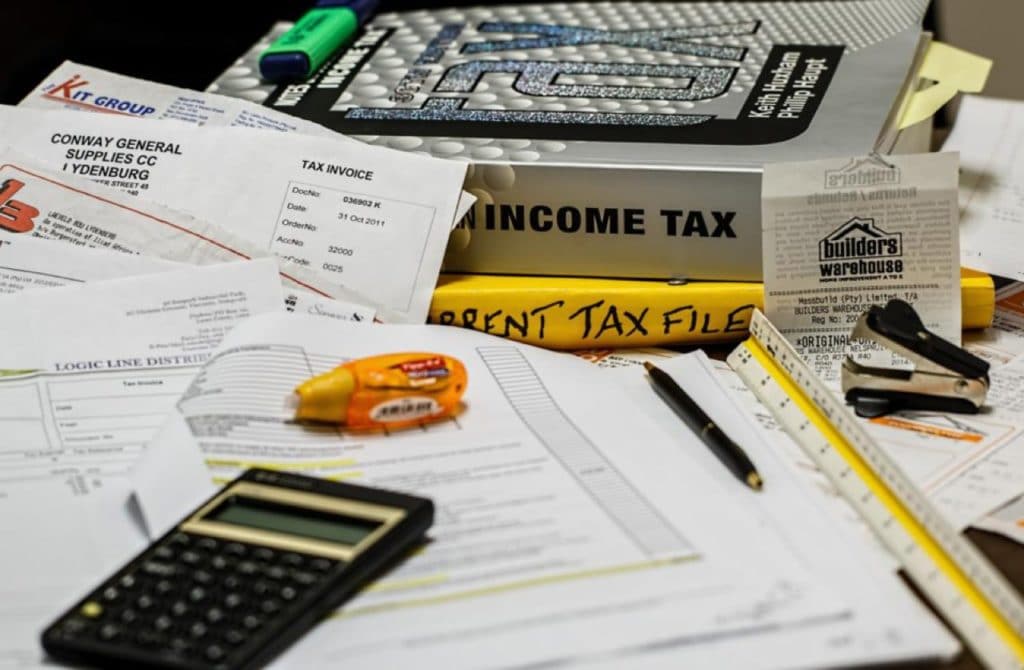The new year might bring new resolutions, but it also brings other changes to a person’s day-to-day life. The start of a new calendar year means it’s time to start worrying about your taxes.
If you’ve recently started to work and earn income, the tax filing process might be brand new to you. You’ve likely heard about the complications of paying your taxes, or you might have even seen your parents working through the process. Now it’s your turn, and you might worry or feel confused about how to get started.
If it’s your first time doing taxes, there are some helpful things to know that can make the entire process easier on you. We’ve compiled a few of the most helpful tips below. Read on and ease your mind.
1. Try To Get Organized Early
The hardest part of doing your taxes is staying on top of all the paperwork. Any tax-paying adult can tell you that. You collect so many different documents and receipts that it can be hard to keep up.
The best thing you can do is to try and stay as organized as possible. If you can keep a box file somewhere in your home, you can deposit receipts and paperwork into it as the year goes by. See if you can keep things organized by month.
That’s a broad enough benchmark to keep things simple, but specific enough that you won’t have to spend hours searching for the piece of paper that you need.
Do yourself a favor and don’t put anything besides essential tax documents into the folder. This will make it much less of a headache to work through in the future.
You’ll also start to get your tax documents from your employers in the mail in January. It’s best to stick these straight into your file box so that you don’t misplace them. There’s nothing worse than starting the tax process and then realizing you don’t have what you need in front of you!
Waiting to get a replacement file can take weeks and put you behind on your initial filing schedule. Staying organized will help to prevent this from happening.
2. Are You A Dependent?
One thing you’ll need to ask your parents about before filing your taxes is whether they claim you as a dependent.
What does that mean?
If your parents paid more than half of your living expenses in the past year, they can write you off as a dependent on their taxes. This helps them to save money, as they can obtain a dependency discount that is often worth thousands of dollars.
It’s important to know if you are being included in your parents’ tax return. If you are, you won’t be able to claim certain deductions for yourself because your parents will be taking those. If they aren’t claiming you as a dependent for this tax year, you might have some opportunity to save more on your taxes.
Don’t think you can get away with trying to get an exemption at the same time as your parents! The IRS will notice this and you might end up having to pay a steep penalty.
3. What’s Your Filing Status?
Now that you’ve determined if your parents filed with you as a dependent, you’ll need to determine your filing status.
This can be fairly simple if you’re single and you have no children. That means you have no dependent relatives you need to take care of and should file as single.
If you do have children or other dependents you take care of, you’ll need to do some quick calculations. Do you pay for more than half of the cost of keeping up your home for yourself and others? If the answer is yes, you might be able to pay fewer taxes via the Head of Household filing status.
Are you married? You won’t file as single, but as Married Filing Jointly. There are many tax advantages to this, as married couples tend to pay fewer taxes overall by filing their returns together as one joint statement.
Filing properly will help ensure your return is processed correctly and that you take advantage of all the potential savings you might have a right to.
4. Take Your Time!
If this is your first year filing taxes, the odds are that your return isn’t all that complicated. With that said, you don’t want to rush through the process. Make sure to give yourself enough time to be thorough and unstressed.
Trying to file right before a deadline will increase the chances you make a mistake. A mistake on your tax return, even if it’s an accident, might cause you to face penalties and fines. Even worse, you might receive an audit request, and then you’ll have to learn about audits and how to protect yourself.
The bottom line is that you shouldn’t wait until the week before taxes are due to take care of them. You get your tax documents in the mail by the end of January at the latest, meaning you should have plenty of time to get on top of everything.
Your First Time Doing Taxes
If 2020 is your first time doing taxes, it may feel like you have a lot to learn. In a sense, you do, but it doesn’t have to be so scary! The above tips will help get rid of some of the stress you may feel when doing your taxes.
Need more personal finance advice? Keep scrolling our blog for more.



